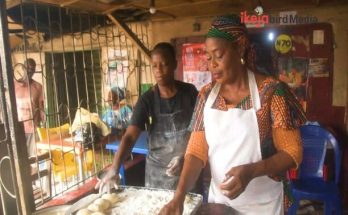By Toochi Ejiofor
Edited by Ezennia Uche
As the world marks the International Day of the Girl Child, young girls across Nigeria continue to prove that they are not waiting for permission to lead. From technology to sports and education, they are taking charge, breaking barriers, and redefining what leadership looks like. The real question is whether Nigeria’s systems are keeping pace with their progress.
At just 12 years old, Tomisin Ogunnubi created a mobile safety app to help lost children find their way home — a solution that speaks to both innovation and empathy. Faith Odunsi stunned the world by outperforming contestants from countries like the United States and China to win the Global Open Mathematics Tournament, while Marylove Edwards, a rising tennis star, began climbing the international rankings before her 15th birthday. These stories are not isolated; they are signs of a generation ready to lead.
Yet, data from UNICEF reveals how far the nation still has to go. Only 48.8% of Nigerian girls attend lower secondary school, and the figures are even lower in states like Sokoto and Katsina, where upper secondary attendance drops to 12%. These numbers show that while some girls are celebrated for breaking through, millions more are being left behind long before they get the chance.

The barriers go beyond classrooms. Only 13.7% of Nigerian girls use the internet at least once a week — a striking gap in a digital age where access defines opportunity. Financial access remains equally limited, with just 11.4% of girls aged 15–19 owning a bank account. Despite this, many girls run small ventures — from thrift sales to digital hair-braiding services — to fund their education or support their families. Their determination shines through systems that were never built with them in mind.
Early marriage continues to truncate the dreams of many, cutting off girls from education, economic opportunities, and leadership potential. These challenges persist despite growing examples of brilliance and resilience among Nigerian girls.
This year’s theme, “The Girl I Am, The Change I Lead,” calls for urgent reflection. If girls are already driving change, Nigeria’s responsibility is to create an environment that sustains and multiplies their impact. This means prioritizing gender-aware public safety, expanding digital access, enforcing laws against child marriage, and providing micro-grants and financial literacy programs tailored to girl-led ventures. Schools also need stronger guidance systems that nurture girls’ ambitions rather than limit them.
Across Nigeria, girls are already showing the world what leadership looks like — curious, creative, and courageous. The question is no longer whether they are ready. It is whether Nigeria is prepared to keep up.








